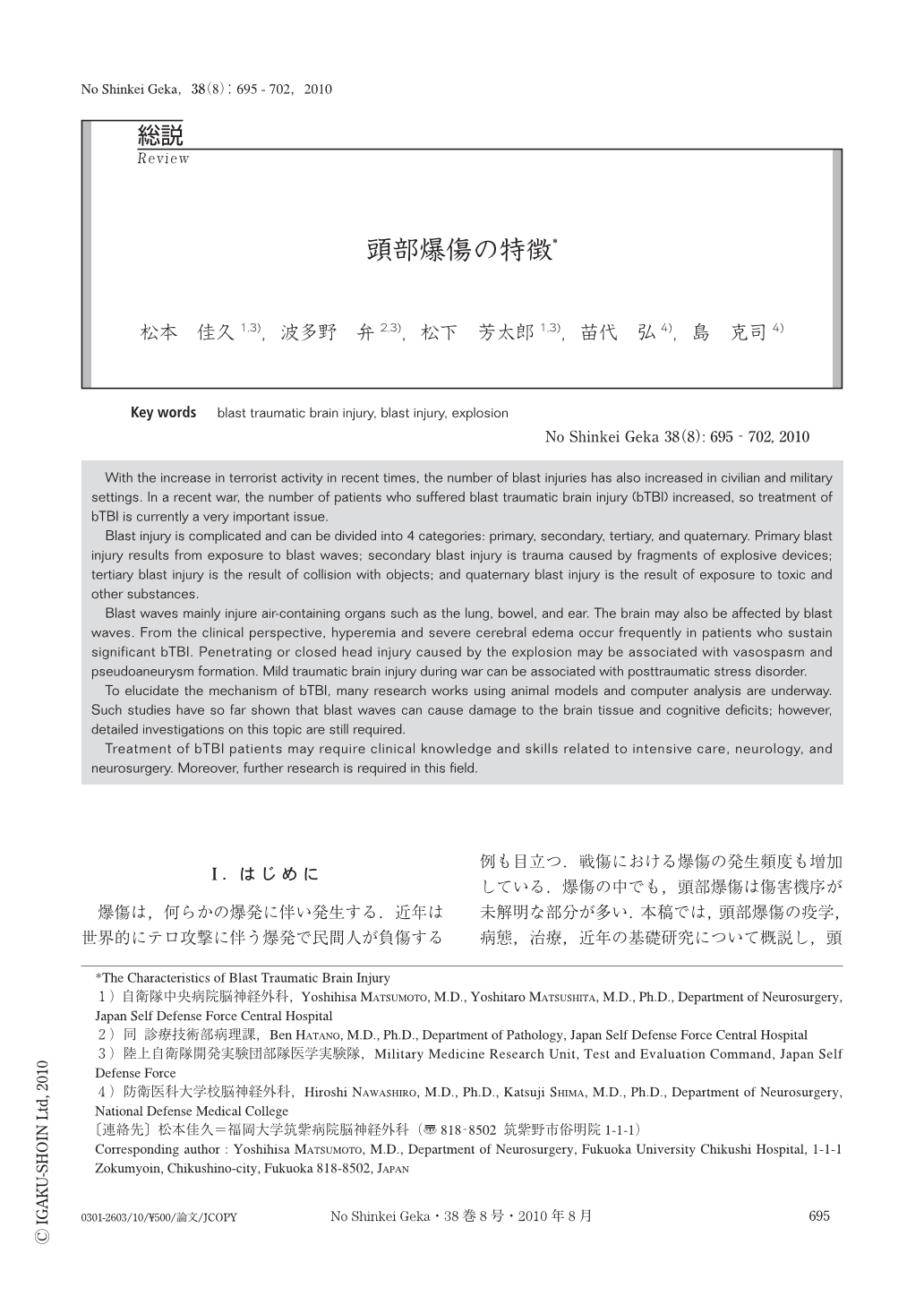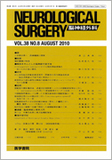Japanese
English
- 有料閲覧
- Abstract 文献概要
- 1ページ目 Look Inside
- 参考文献 Reference
Ⅰ.は じ め に
爆傷は,何らかの爆発に伴い発生する.近年は世界的にテロ攻撃に伴う爆発で民間人が負傷する例も目立つ.戦傷における爆傷の発生頻度も増加している.爆傷の中でも,頭部爆傷は傷害機序が未解明な部分が多い.本稿では,頭部爆傷の疫学,病態,治療,近年の基礎研究について概説し,頭部爆傷のもつ特徴や問題点について考察する.
With the increase in terrorist activity in recent times, the number of blast injuries has also increased in civilian and military settings. In a recent war, the number of patients who suffered blast traumatic brain injury (bTBI) increased, so treatment of bTBI is currently a very important issue.
Blast injury is complicated and can be divided into 4 categories: primary, secondary, tertiary, and quaternary. Primary blast injury results from exposure to blast waves; secondary blast injury is trauma caused by fragments of explosive devices; tertiary blast injury is the result of collision with objects; and quaternary blast injury is the result of exposure to toxic and other substances.
Blast waves mainly injure air-containing organs such as the lung, bowel, and ear. The brain may also be affected by blast waves. From the clinical perspective, hyperemia and severe cerebral edema occur frequently in patients who sustain significant bTBI. Penetrating or closed head injury caused by the explosion may be associated with vasospasm and pseudoaneurysm formation. Mild traumatic brain injury during war can be associated with posttraumatic stress disorder.
To elucidate the mechanism of bTBI, many research works using animal models and computer analysis are underway. Such studies have so far shown that blast waves can cause damage to the brain tissue and cognitive deficits; however, detailed investigations on this topic are still required.
Treatment of bTBI patients may require clinical knowledge and skills related to intensive care, neurology, and neurosurgery. Moreover, further research is required in this field.

Copyright © 2010, Igaku-Shoin Ltd. All rights reserved.


